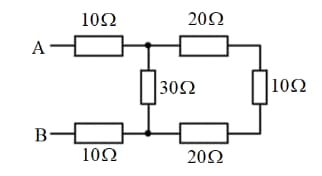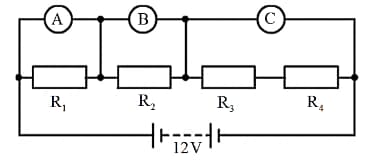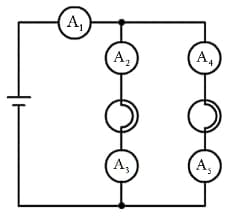Lakhmir Singh and Manjit Kaur Solutions for Chapter: Electricity, Exercise 25: Questions Based on High Order Thinking Skills (HOTS)
Lakhmir Singh Physics Solutions for Exercise - Lakhmir Singh and Manjit Kaur Solutions for Chapter: Electricity, Exercise 25: Questions Based on High Order Thinking Skills (HOTS)
Attempt the practice questions on Chapter 1: Electricity, Exercise 25: Questions Based on High Order Thinking Skills (HOTS) with hints and solutions to strengthen your understanding. Science for Tenth Class Part - 1 Physics solutions are prepared by Experienced Embibe Experts.
Questions from Lakhmir Singh and Manjit Kaur Solutions for Chapter: Electricity, Exercise 25: Questions Based on High Order Thinking Skills (HOTS) with Hints & Solutions
A resistor of is connected in parallel with another resistor . The resultant resistance of the combination is . What is the value of the resistor ?
What is lowest resistance which can be obtained by combining four resistors having the following resistances?
What is the resistance between and in the figure given below?

You are given one hundred resistors. What is the smallest and largest resistance you can make in a circuit using these?
You are supplied with a number of resistors. How could you combine some of these resistors to make a resistor?
The resistors and in the figure given below are all equal in value.

What would you expect the voltmeters and to read assuming that the connecting wires in the circuit have negligible resistance?
Four resistances of each are connected in parallel. Four such combinations are connected in series. What is the total resistance?
If the lamps are both the same in the figure given below and if reads what do and read?

